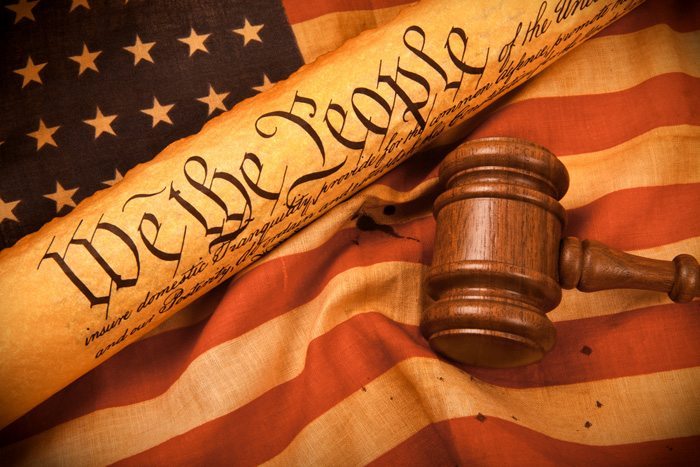There Were Two Supreme Court Attacks on Women Workers and Their Health This Week
While the Hobby Lobby ruling keeps the government from guaranteeing basic reproductive health care for workers, the Harris decision effectively hobbles the ability of a group of public employees—most of whom are women—to properly bargain for affordable health care along with other vital benefits.

Read more of our coverage on the Hobby Lobby and Conestoga Wood cases here.
By now, we are all well aware of the Supreme Court’s decision in the Hobby Lobby case. In a split decision, the Supreme Court put in jeopardy women’s access to contraception and has given the religious freedom of those with money and privilege the power to dictate the health coverage of their employees.
Monday morning, the Court also struck a blow to unions in Harris v. Quinn, undermining the ability of home-care workers in Illinois to bargain for humane wages and benefits. While the Hobby Lobby case keeps the government from guaranteeing basic reproductive health care for workers, the Harris decision effectively hobbles the ability of a group of public employees—most of whom are women—to properly bargain for affordable health care along with other vital benefits. Remember, it was unions that first pressed for health and retirement benefits for employees, vaulting them into the mainstream and giving them the widespread status they enjoy today. Overall, the message the Court seems to be sending is that the government can’t fight for your health and neither can you.
Harris is a case about the rights of public employees to demand fair wages and benefits, including health care. Home-care workers are contracted by the State of Illinois to help clients in the state’s rehabilitation program. Their union collects fees from nonmembers in order to ensure everyone shares in the costs of negotiating for benefits—a common feature of these kinds of contracts, authorized by law in over 20 states. According to Justice Kagan’s dissent in Harris, “home-care assistants [in Illinois] have nearly doubled their wages in less than ten years, obtained state funded health insurance, and benefited from better training and workplace safety measures” because of the union’s success. The state and its clients have also benefited from a having stable, qualified workforce. Win-win.
In spite of these successes, a majority of the justices in Harris sided with nonmembers who objected to paying fees on First Amendment grounds. In doing so, the Supreme Court took a step toward stripping workers in many states of the tools they need to get fair wages and benefits, including health-care coverage. And perhaps it is no great surprise that, like the Hobby Lobby decision, Harris disproportionately affects women, who form an overwhelming majority of the home-care workforce, are consistently paid less than men, and tend to pay more for health care.
Working women and families seeking affordable health care deserve to have their voices heard in Congress and at the bargaining table. Instead, the Supreme Court has given a small number of nay-sayers veto power over workers’ access to employee benefits in the name of religious liberty and First Amendment freedoms. Now, thanks to this ruling, public sector union agreements may be vulnerable to attack by anti-union attorneys in many states. And closely held corporations (which make up about 90 percent of all corporations in the country) whose owners assert they have a personal objection to contraceptives are likely to exempt themselves from providing basic health coverage.
We ought to be asking ourselves whose rights the Court is protecting in these decisions and at what cost, under the banner of a legal philosophy that appears deeply invested in halting and reversing any progress in the health and well-being of women and their families.

